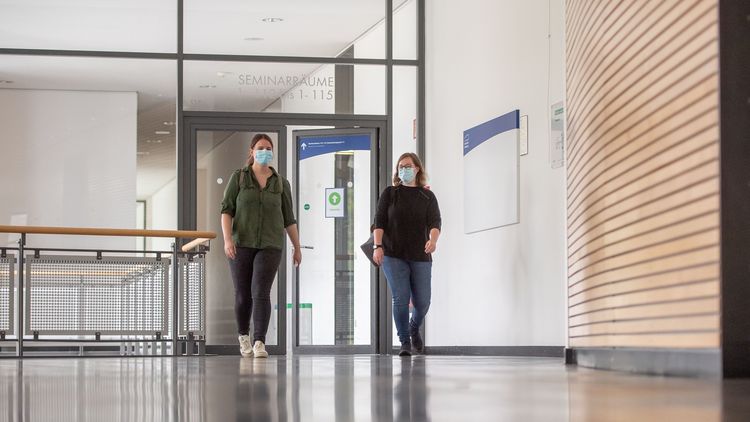Deterioration in speech understanding when the speaker is wearing a mask mainly has visual causes. They are even more significant than the acoustic attenuation caused by the masks.
According to experiments conducted by a group of hearing researchers at the medical faculty of the University of Oldenburg, the fact that we understand what a person is saying less well when they are wearing a face mask is primarily due to our not being able to see their mouth. With this study, they have thus shown that not only people with impaired hearing, but also a large part of the others unconsciously benefit from lip-reading in everyday situations. When deprived of the possibility to lip-read, their speech understanding decreases significantly. The interdisciplinary research team has now presented the results of its study "How Face Masks Interfere with Speech Understanding of Normal-Hearing Individuals: Vision Makes the Difference" in the scientific journal Otology & Neurotology. The team consists of researchers from the university's Department of Medical Physics and Acoustics and the University Clinic for Otorhinolaryngology.
To find out how wearing cloth and medical masks affects speech understanding, the researchers played several recorded sentences to their test subjects. Sometimes the subjects could only hear the sounds, while other times they also could see a video of the person speaking the sentence. In the next phase of the experiment the speaker's mouth was covered by a virtual mask. In addition, the test subjects heard either the original sound track or one where the acoustics had been attenuated by several decibels, as is typical with the two types of masks under investigation.
In all scenarios, the researchers measured how well the participants could understand the sentences in a situation with background noise. The results of the experiments showed that despite the same sound quality, speech understanding decreased by about a third when the speaker's mouth was hidden behind the virtual mask – in fact by just as much as when the participants couldn't see the speaker at all.
The experiments demonstrate that the loss of visual input had a greater impact on speech understanding than the acoustic attenuation caused by the masks. Speech intelligibility was also reduced slightly more by a simulated cloth mask than by a simulated medical mask. The team is currently carrying out measurements with FFP2 masks.


